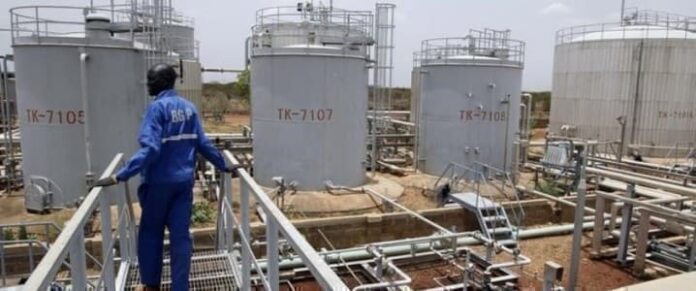South Sudan oil flow has resumed weeks after drone strikes disrupted operations at key facilities. Oil is once again flowing through Port Sudan after a weeks-long suspension caused by drone attacks on vital infrastructure.
Sudan’s deputy ambassador to South Sudan, Mubarak Mahjoub Musa, who spokes to media said that crude exports have restarted and operations are running smoothly.
“We have [had production back] for nearly a month now—I cannot recall the exact date, but operations are running smoothly. The damage was repaired through joint technical committees between Juba and Port Sudan. I can confirm everything is functioning.”
Last month, Sudan’s army-aligned government had ordered oil firms to prepare for a shutdown—threatening South Sudan’s economy, which relies on oil for over 90% of its revenue.
The resumption comes after technical teams from both countries worked to restore damaged infrastructure in Port Sudan, the Red Sea hub now serving as the army’s wartime capital.
South Sudanese officials have not commented publicly, but Nancy Malir from the Nilepet Workers Union confirmed production has resumed. However, she raised concerns over unpaid wages.
“Our salaries were cut by 70%, and management promised arrears once production resumed, but nothing has been paid.” Nilepet employees are currently on strike, demanding overdue salaries and benefits.
The restart follows a major attack last month, when a key pump station and fuel depot were hit—allegedly by Sudan’s paramilitary Rapid Support Forces. The RSF has repeatedly targeted infrastructure in its ongoing conflict with the army.
Since the war began in April 2023, it has killed tens of thousands, displaced over 13 million people, and disrupted oil and electricity supplies across the region.
South Sudan currently exports an estimated 110,000 barrels of crude per day via Port Sudan, paying transit fees to Khartoum.
The recent restart came just months after oil exports resumed in January, following a year-long suspension due to pipeline damage.





